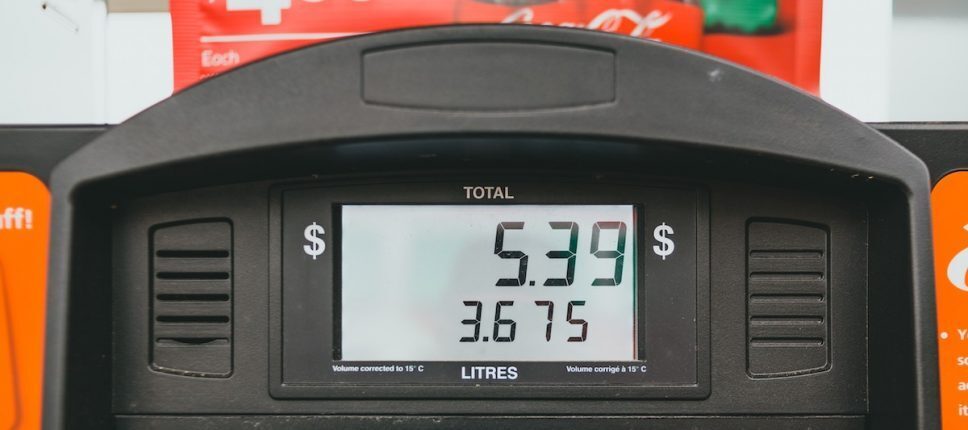What is Gas in Regards to Ethereum?
In the Ethereum network, gas is used to pay transaction fees. Every transaction that is carried out on the Ethereum network requires a certain amount of gas. You’ll often see gas denominated in Gwei, which is a unit of Ether (the coin of Ethereum).
The amount of gas required for a transaction depends on the complexity of the transaction.
What is a Gas Tracker?
A gas tracker is a tool that helps users to track the current gas prices on the Ethereum network.
Gas prices can fluctuate quite frequently and so users need to have a reliable way of tracking the prices. Gas trackers also usually offer other features such as gas price history or a gas price calculator.
Generally gas trackers can’t be installed in a browser but they are also available as standalone mobile apps. There are certain wallets or exchanges that have gas trackers built into their software.
What is the Best ETH Gas Tracker?
There is no definitive answer to this question as there are several different gas trackers available, and each has its own set of features.
Here’s a quick look at some of the most popular apps currently available:
EtherScan Gas Tracker
EtherScan‘s gas tracker is one of the most popular tools for tracking ETH gas prices. The tool provides users with real-time data on the current gas prices. In addition, it also offers a history of past gas prices so that users can see how the prices have fluctuated over time.
On this site, you can find charts and graphs of gas prices per block confirmation in the last 1000 blocks which can help predict future gas prices. The EtherScan interface also gives users a clear view of the estimated cost of transactions across popular dApps(decentralized applications) such as OpenSea and Uniswap.
UseWeb3
UseWeb3 is a fully-fledged ETH gas tracker that also provides users with a range of other features. In addition to tracking gas prices, UseWeb3 also allows users to compare gas prices across different ETH wallets.
This can be helpful for those who want to find the most economical option for their needs. Users also get a clear view of the average transaction costs across multiple dApps and DeXs in the Ethereum ecosystem. The site also includes a gas price calculator so that users can estimate the cost of individual transactions. UseWeb3 also provides users with a range of other useful ETH-related resources, such as an ETH price chart, an Ethereum academy, and an ETH block explorer, to mention a few.
Blocknative Gas Estimator
Blocknative gas estimator is another popular gas tracker that offers a few different features. In addition to tracking gas prices, Blocknative Gas Estimator also gives users a clear display of the gas they would pay according to the probability of prioritizing their transaction on the Ethereum network.
With Blocknative Gas Estimator, users can pay to receive gas updates every second, minute, or hour. This is a great feature for those who want to be sure they’re getting the most up-to-date information on gas prices. The site also includes a gas price history so that users can see how prices have fluctuated over time.
GasGas
GasGas is a straightforward ETH gas tracker that is built similar to a plug-and-play replacement for GasNow’s API.
With a simple minimalist interface, you can view live gas fees according to the degree of priority you’re willing to pay. For instance, you can view the ‘Slow’ priority category with its set gas price that will confirm your transaction in ~10 minutes 85% of the time. If you’re willing to pay a higher fee, you can also view the ‘Rapid’ gas price category, which is the gas price that will confirm your transaction in ~15 minutes 50% of the time.
GasPrice
GasPrice.io comes with an intuitive user interface with clear charts and graphs showing how much gas value in USD you would have to pay for instant, fast, and ECO transactions.
The ETH gas tracker also includes a gas price history so that users can see how prices have fluctuated over time. In addition, the site provides users with a range of other useful resources such as deep transaction pool analysis tools, real-time visualization of the transaction pool, and an ETH gas price calculator.
Conclusion: Always Be Aware of the Cost of Gas
Choosing the best ETH gas tracker for your needs is important. Gas prices can fluctuate, so it’s important to stay up-to-date on the latest prices. The ETH gas trackers we’ve listed above are our top picks for the best ETH gas trackers.
As the Ethereum network continues to grow and scale, so too will the need for accurate and up-to-date ETH gas tracking tools. These tools are vital for those who want to avoid paying exorbitant fees for their transactions. With the help of these gas trackers, users can be sure they’re always paying the lowest possible gas prices. Each of these ETH gas trackers has its unique features and benefits. We hope this list will help you find the best ETH gas tracker for your needs.
FAQ About ETH Gas Trackers
High gas fees usually indicate that there is high demand for transaction processing on the Ethereum network. When gas prices are high, it means that users are willing to pay more for their transactions to be processed quickly.
There is no surefire way to avoid high gas fees as they are often due to high demand on the Ethereum network. However, there are a few things that users can do to try and minimize the amount of gas fees they have to pay. One way is to use a gas tracker to monitor gas prices so that you can make sure you’re only paying when gas prices are low. Another way is to use a gas price calculator to estimate the gas fees you’ll need to pay for a transaction before you make the transaction.
A fast transaction is processed quickly by the Ethereum network. An eco-friendly transaction uses less gas, which means it is cheaper and causes less congestion on the Ethereum network.
Even though gas fees on the Ethereum network can be quite high, it is still widely used because it is a very popular and well-established platform. In addition, Ethereum offers a lot of features and functionality that other blockchain platforms do not offer.
Some alternatives to Ethereum include EOS, Cardano, and Tron.








